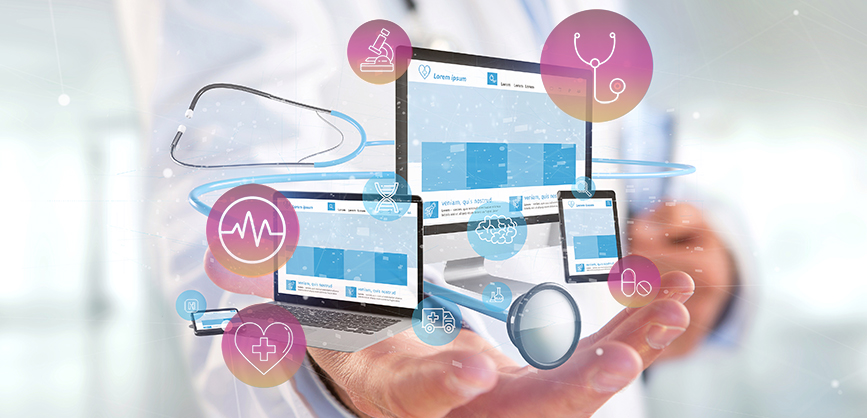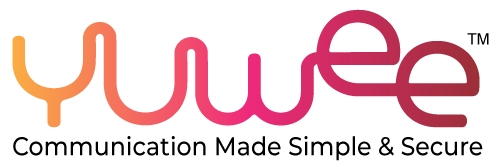
In this article, we shall talk on the impact of cloud communication in healthcare, in regards to customer relationships.
The ever growing healthcare industry
Growing consumer demand and technological improvements have resulted in the growth of this industry. However, as consumer demand grows, the need for effective communication is also there. In healthcare, it is essential to keep the patient in check at all times for a more significant experience even in difficult moments. Also, this ensures the patient, caregiver, and institution are free from tension.
Nonetheless, despite the increasing number of healthcare consumers, clinics and nursing homes do not have sufficient conventional hospital calling systems. For this reason, cloud communication in healthcare is vital.
Communication challenges for healthcare stakeholders
Patients
- Booking appointments: Although there are so many apps for making appointments, booking appointments at the appropriate time is a challenge to most patients.
- Tracing appointments: In most cases, patients do not get notified, or get late notification of either a canceled or postponed appointment. As a result, they get angered, and leave a bad review for the doctors, despite the situation.

- Sending notifications: Almost all health care centers have to manually call their patients when scheduling an appointment or reminding them of a regular checkup. But, since this is manure, chances of these notifications not reaching the patient on time are higher.
Hospitals
- Tracing customer conversation: Although some patients call in asking questions, most healthcare call centers lack a means of tracking their conversations.
- Monitor customer experience: Because of the lack of a system to trace conversations, most healthcare setups are unable to monitor the experience of their customers. Most data get forged, leading to that hospital having a negative reputation.
- Performance measurement: Many medical call centers lack a system of tracing their agent’s performance.
- Management of outbound campaigns: Even though most healthcare centers run campaigns for regular check-ups, blood donation, and others, managing such a vast customer database remains a challenge.
Diagnostic centers and pharmacies
- CRM Integration: Many pharmacies and diagnostic centers do not have a CRM integration. Or, they have one that has limited functionality. As a result, they lose their patient’s data, as well as a track of recent communication.
- Management of distributed centers: Managing customers across multiple centers is a challenge. Likewise, monitoring the performance of every center is difficult.
How does cloud communication help in healthcare?
1. Protecting customer data
Every patient expects that his/her data will remain safe and confidential. In general, patients are uncomfortable with their information getting accessed by anyone, including the healthcare center representative. For this reason, healthcare centers require an effective health communication solution. The use of cloud communication in the healthcare industry allows the connection of technicians to patients without the contact information getting revealed.
2. Easier customer support
One of the most critical needs in healthcare industry is an effective communication solution. But, the solution should be easier for a patient to use in reaching out a hospital phone system. The use of cloud communication allows you to make one number for all customer questions using an IVR guide.
Further, a smart routing system is utilized in transferring calls to the ideal agent according to the question. Moreover, moving calls to a specific doctor or department is possible.
3. Automatic outbound reminder campaigns
Chances of patients forgetting to submit their samples, attending their appointments, or collecting reports are high. However, you can prevent all this by sending reminders to patients.
To do so, clinics/ hospitals should adopt cloud communication. In turn, they can set up an automated one day before reminder to call to patients. The same applies to the collection of report and submission of samples.
4. Automated service reminders
Many patients, more so the elderly and new parents, should be reminded about their next appointment. However, rather than manually calling or messaging them, hospitals can set up automated calls and SMS reminders for each patient. Nonetheless, this can be done via a healthcare call center software which is available in cloud telephony.
Apart from reducingpatient’s no-shows, this system will assist you in developing the reputation of your hospital as a caring one.
5. Updated patient records
Among the critical roles of any healthcare,the center is keeping track the progress of a patient, as well as medication at all times. This involves always recording prescribed medication, tests are done, the outcomes, and the progress of the patient. If this is done manually, it will be tedious to agents, and create higher chances of errors.
But, with cloud telephony, it is easier to integrate with a healthcare information management system for updated patient records. Besides that, it allows agents to make conversations with the patients.
6. Automated feedback systems
Maintaining a good relationship with patients is essential for any hospital. This way, patients feel a sense of belonging and will be loyal to your hospital. Further, the patients will help you get first-hand feedback.
To get feedback from the patients whenever they visit, you should set up an automated call and SMS campaign for collecting feedback from patients.
Conclusion
Patients are customers in the healthcare industry, and they should get a pleasant experience. If a customer is happy with your services, he/she will be loyal to your brand despite the availability of competitors. Besides that, the customer can refer friends and family to your services.
But, easier communication is the first step to the creation of a loyal customer community. Irrespective of the size of your healthcare center, you should adopt a cloud telephony software as your communication solution.
